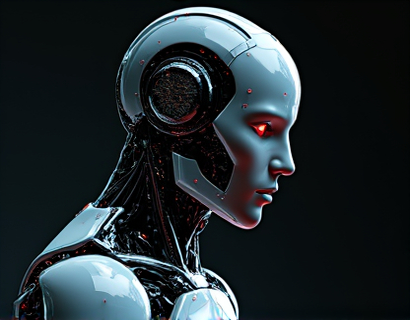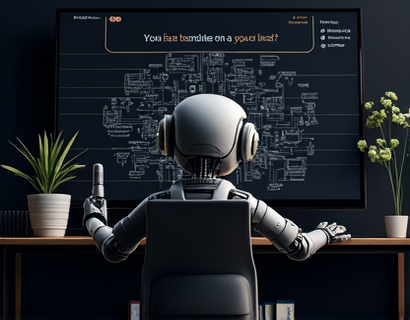Smart Home Revolution: Embrace the Future with Cutting-Edge Appliances for Modern Living
The advent of smart home technology has ushered in a new era of living, where convenience, efficiency, and comfort converge to redefine the modern home. This revolution is not just about integrating technology into daily life but about creating an environment that adapts to your needs, enhancing every aspect of your living experience. From intelligent appliances to sophisticated home automation systems, the possibilities are vast and exciting. This article delves into the latest innovations in smart home technology, highlighting the exceptional quality and unbeatable value of these cutting-edge appliances designed to transform your daily routines and elevate your lifestyle.
One of the most significant advantages of smart home appliances is their ability to streamline and simplify daily tasks. Gone are the days of manually adjusting thermostats, monitoring security systems, or remembering to turn off lights. Smart thermostats, for instance, learn your temperature preferences and adjust accordingly, ensuring optimal comfort while reducing energy consumption. These devices can be controlled remotely through smartphones or voice commands, allowing you to manage your home's climate from anywhere.
Smart lighting systems offer another layer of convenience and energy efficiency. These systems can be programmed to mimic natural light patterns, enhancing mood and productivity. They can also be set to turn on and off at specific times or triggered by motion sensors, ensuring that lights are only used when needed. This not only saves energy but also extends the lifespan of light bulbs. Voice-activated lighting controls take it a step further, allowing for hands-free operation and seamless integration with other smart devices.
In the kitchen, smart appliances are revolutionizing the way we cook and prepare meals. Smart refrigerators, for example, come equipped with features like built-in cameras, inventory management, and recipe suggestions. These refrigerators can track expiration dates, alert you when items are running low, and even suggest meals based on the ingredients you have on hand. Some models feature touch screens and internet connectivity, allowing you to stream music, check emails, or control other smart devices right from your fridge.
Smart ovens and stoves are equally impressive. These appliances can be preheated remotely, monitored through apps, and even send notifications when your food is cooked to perfection. Some models include self-cleaning functions and precise temperature controls, ensuring consistent and high-quality cooking results. Induction cooktops, a popular choice in smart kitchens, offer rapid heating and precise temperature control, making cooking more efficient and safer.
The integration of smart appliances extends to the laundry room as well. Smart washing machines and dryers can be controlled via smartphones, allowing you to start, stop, or monitor cycles from anywhere. These devices often come with advanced features like automatic load detection, which adjusts water and energy usage based on the load size, and steam cleaning options for deeper sanitization. Some models even include self-cleaning filters and predictive maintenance alerts, reducing the need for frequent repairs.
Home security has also seen a significant transformation with the advent of smart security systems. These systems combine cameras, sensors, and smart locks to provide comprehensive protection for your home. High-definition cameras with night vision and motion detection can be monitored through apps, sending alerts to your smartphone when unusual activity is detected. Smart locks can be controlled remotely, allowing you to grant temporary access to guests or service providers without the need for physical keys.
Beyond individual appliances, smart home hubs and voice assistants play a crucial role in creating a cohesive and user-friendly environment. Devices like Amazon Echo and Google Nest Hub serve as central control points, allowing you to manage multiple smart devices with simple voice commands. These hubs can integrate with a wide range of devices, from lighting and thermostats to security systems and entertainment devices, creating a seamless and intuitive user experience.
The benefits of smart home technology extend beyond convenience and efficiency. These devices contribute to a more sustainable lifestyle by optimizing energy usage and reducing waste. Smart energy monitors provide real-time data on your home's energy consumption, helping you identify areas where you can save. By automating tasks and optimizing resource use, smart home appliances help lower your carbon footprint and reduce utility bills.
For tech-savvy homeowners, the allure of smart home technology lies in its potential for customization and innovation. The ability to create personalized scenes and routines enhances the living experience, making your home adapt to your specific needs and preferences. For example, you can set a "movie night" scene that dims the lights, adjusts the thermostat, and starts your home theater system with a single command. This level of customization not only adds a touch of modern sophistication but also enhances the overall comfort and enjoyment of your home.
As the smart home market continues to evolve, the focus on interoperability and standardization is becoming increasingly important. Ensuring that devices from different manufacturers can work together seamlessly is crucial for a truly integrated smart home. Industry standards like Matter are being developed to address this issue, promoting compatibility and ease of use. This trend towards greater interoperability means that in the future, you can expect even more seamless integration and a wider range of smart devices to choose from.
The future of smart home technology is also shaped by advancements in artificial intelligence and machine learning. These technologies enable smart devices to learn from user behavior and adapt over time, providing more personalized and intuitive experiences. For instance, a smart home system powered by AI can predict your daily routines and adjust settings proactively, making your life easier and more convenient. The potential for these technologies to enhance our living spaces is vast, opening up new possibilities for innovation and improvement.
In conclusion, the smart home revolution is transforming the way we live, making our homes more efficient, comfortable, and secure. With a wide range of cutting-edge appliances and integrated systems, the modern home is becoming a hub of innovation and convenience. Whether you're a tech enthusiast or simply looking to enhance your daily life, embracing smart home technology offers countless benefits. As the market continues to grow and evolve, the future of smart living looks brighter and more exciting than ever.










































